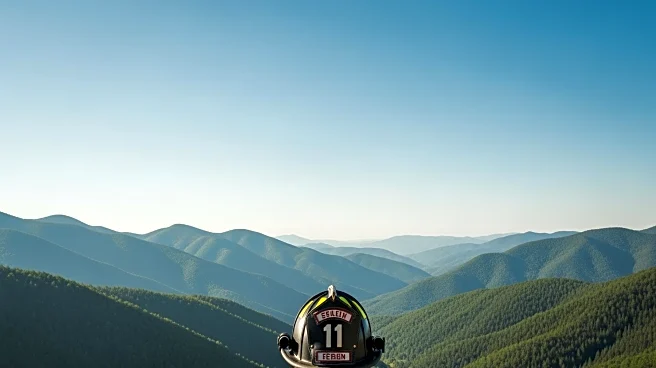What's Happening?
Firefighters in New Zealand have made significant progress in controlling a wildfire that has affected thousands of hectares in Tongariro National Park. The fire, which started on Saturday, led to the
evacuation of Whakapapa Village and the airlifting of hikers from huts. Rain and firefighting efforts have reduced active fire activity, allowing residents to return to the area. However, the park remains closed to visitors due to ongoing safety concerns. The cause of the fire is still under investigation, and the Department of Conservation is assessing biodiversity damage.
Why It's Important?
The containment of the Tongariro wildfire is crucial for the safety of residents and the preservation of the national park, a World Heritage area. The fire has impacted tourism, with cancellations affecting hundreds of visitors. The incident highlights the challenges of managing natural disasters and the importance of effective emergency response. The biodiversity damage could have long-term ecological implications, affecting conservation efforts and the park's natural heritage.
What's Next?
Firefighters will continue to monitor the area, with aerial support on standby to address any flare-ups. Investigations into the fire's cause will proceed, potentially informing future prevention strategies. The Department of Conservation will conduct a detailed assessment of the ecological impact, guiding restoration efforts. The park's reopening will depend on safety evaluations, with tourism operators adjusting plans accordingly.
Beyond the Headlines
The wildfire underscores the vulnerability of natural areas to climate-related events, prompting discussions on environmental protection and sustainable tourism. It may lead to policy reviews on fire management and emergency preparedness. The incident also highlights the resilience of local communities and the importance of collaboration between government agencies and residents in disaster response.









